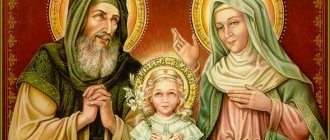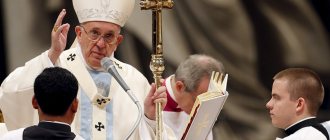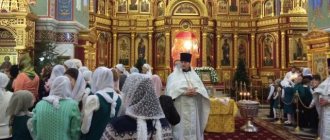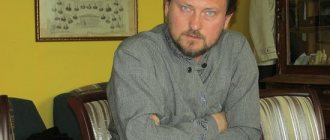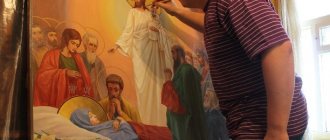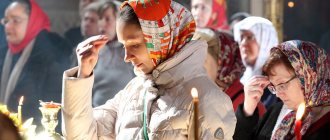There are not so many people who were raised in the Orthodox or Soviet atheistic tradition and then consciously converted to Catholicism that this could be considered a mass phenomenon. But not so little as not to pay attention to them at all. At the request of The Village, Kommersant newspaper correspondent Maria Semendyaeva asked Moscow Catholics about how they came to the faith and how they live with it, and also spoke with the Secretary General of the Conference of Catholic Bishops of Russia.
Natasha
I converted to Catholicism in my fourth year, I don’t know why. I have been baptized Orthodox since childhood. I had a very religious grandmother, who took me to church and baptized me, but no one was particularly involved in my religious upbringing. At the same time, I was a believing girl, impressionable, but I didn’t know exactly how to go to church or what to do there.
At some point, I found myself in a crowd that sympathized with Catholicism. I came to the service with them, looked, and found out that they have catechesis - courses that prepare for the adoption of Catholicism. In principle, if I had come across the same Orthodox courses, perhaps I would not have converted to Catholicism. It all meant something to me at the time, but now my motives have changed. I still go to temple every week, but the initial strong impulse has gone.
What attracts me most about Catholicism is the unity of teaching: in fact, there are not many differences between Orthodoxy and Catholicism, but we have the Pope, his authority unites Catholics all over the world. Whereas the Orthodox have too many diverse and completely independent movements.
| If it is possible to soften the fate of specific people, we must soften |
The fact that some Orthodox priests are now making such intolerant statements about Pussy Riot and homosexuals - they say, burn in hell - seems wrong to me. I don't hear this from Catholic priests. Perhaps in Italy some priest also speaks harshly about the dangers of the modern world. But this is poorly covered in the Russian press, and I don’t read the foreign press.
I think we can’t say that everything is fine and good and how we live is how we should live. Of course, some kind of toughness is needed, but inciting hatred is bad. I don’t know what Christ would have done with the gay pride parade and with Pussy Riot, but if you can somehow soften the fate of specific people, you need to soften it. Besides, these people are not from the church. If a churchgoer does something wrong, the priest can tell him: “What are you doing, you’re disgracing us all!” But if these are strangers, then what difference does it make?
My parents are not very churchgoers: my mother is not baptized at all, and this is all surprising to her. Dad is baptized and sometimes seems interested, he likes to go to the Easter service once a year. I don’t feel the moral right to agitate them, although, of course, it would be nice to drag them into church. When I myself get ready to get married, I will definitely get married, and I will baptize my children in Catholicism from childhood.
Origin of Catholicism
The term “church” began to appear in written sources (letters of Clement of Rome, Ignatius of Antioch, Polycarp of Smyrna) from the second century. This word was synonymous with municipality. At the turn of the second and third centuries, Irenaeus of Lyons applied the word "church" to Christianity in general. For individual (regional, local) Christian communities it was used with the corresponding adjective (for example, the Church of Alexandria).
In the second century, Christian society was divided into laity and clergy. In turn, the latter were divided into bishops, priests and deacons. It remains unclear how governance was carried out in the communities - collegially or individually. Some experts believe that the government was initially democratic, but over time it became monarchical. The clergy was governed by a Spiritual Council headed by a bishop. This theory is supported by the letters of Ignatius of Antioch, in which he mentions bishops as leaders of Christian municipalities in Syria and Asia Minor. Over time, the Spiritual Council became merely an advisory body. But only the bishop had real power in a particular province.
In the second century, the desire to preserve apostolic traditions contributed to the emergence of church hierarchy and structure. The Church had to protect the faith, dogmas and canons of the Holy Scriptures. All this, as well as the influence of the syncretism of the Hellenistic religion, led to the formation of Catholicism in its ancient form.
Lena
I was baptized according to the Orthodox rite at the age of five. I remember this day well. There was no denial of Christianity in our family—there was an aesthetic interest: looking at icons in the church, listening to singing.
My conversion to Catholicism in 2003 was also connected with some kind of general cultural interest. I was studying at a music school then, and we were studying Bach's Mass in B minor. I was invited to listen to the mass and look at the organ. I came, met amazing people, a very wise priest, and from there my deepening into religion began. That is, it turns out that I came to faith through music. I am still studying at the Gnessin Academy, majoring in organ, and play the organ in the Church of St. Louis.
The catechism was performed by sisters of mercy from the Order of Mother Teresa. In Nalchik (where I come from) they helped the poorest and most unfortunate: the homeless, orphans, those whom no one visits in the hospital. In 2003 there were more parishioners in Nalchik than in 2012, and there were also more young people.
| If I came across a good Orthodox priest, I would begin to delve deeper into Orthodoxy |
My dad treated my faith coldly, and my mother was also wary at first. Still, I was 16 years old - at this age many people either join a sect or take bad paths. But then my mother got sick, and my sister and I visited her. Then many people from the parish helped a lot. Mom, thank God, got back on her feet and after that reconsidered her attitude. She has not converted to Catholicism, but sometimes comes to mass.
I was not particularly Orthodox, but if I had come across a good Orthodox priest in 2003, perhaps I would have begun to delve deeper into the faith that is connected with the history of our country.
I have friends who were conscious Orthodox, but then converted to Catholicism. It was amazing for me. I asked them why, and now I feel the same way: in the Catholic Church they found unity. All congregations of the Catholic Church are united by the Pope - this is not the case in Orthodoxy. This unity is very well felt at international meetings. Last year I was at such a meeting of young people with my dad in Madrid and in 2005 I went to Cologne.
I have many Orthodox friends who are calm about my faith.
Name
The word "Catholicism" is of Greek origin and translated means universality or universality. In the modern understanding, this term refers to the Western branch of Christianity, which adheres to the apostolic traditions. Apparently, the church was understood as something universal and universal. Ignatius of Antioch spoke about this in 115. The term "Catholicism" was officially introduced at the first Council of Constantinople (381). The Christian Church was recognized as one, holy, catholic and apostolic.
Gleb
I converted to Catholicism at age 9. It was quite a deliberate step. My dad is a military man. After he retired, we were brought to Western Ukraine, near Vinnitsa, where Orthodoxy plays a secondary role, so to speak. Dad was raised in the spirit of scientific atheism and did not attach any importance to religion until one incident occurred. The Pope was driving a car bomb and was stopped by a Catholic priest. They were driving, it was hot, but for some reason the priest closed the window. And right at that second, a large stone from a passing truck flew through the window. Dad was surprised - and he and the priest started talking and got to know each other.
Dad needed a job, and the priest came to restore the old Catholic church - Dad began to help. We communicated with this priest for several years and became friends. Everything happened absolutely naturally: first dad was baptized, and then I. I didn’t even think about the fact that it was possible not to be baptized.
For children, catechesis is minimal, especially if you go to classes constantly. Classes were held for several months on Saturdays, they were called “fives” because for every five classes they gave a beautiful postcard with biblical scenes. The Catholic community is very active: we always had some kind of evenings, songs with a guitar, gatherings around the fire.
| I can’t wrap my head around how you can change your religion. You can't change your mother |
When we arrived in Russia in 1995, I strongly felt the difference. Here my mother’s relatives are all Orthodox - and we come, Catholics from Ukraine. We seemed strange.
We were unfamiliar with the distance between the clergy and parishioners. The community we belonged to was very close-knit. Probably the fact is that it was formed around one common cause: we restored the church - and restored it, now it is the main attraction there.
I have encountered hostility towards Catholicism only a couple of times in my life. Once I went into an Orthodox church in Severodvinsk and crossed myself from left to right with an open palm. Then, of course, the grandmothers shushed me, and I realized: okay, I’ll come back another time.
They also ask me: how is it possible, you are a Catholic, and you have a tattoo, you play in a rock band. But this has nothing to do with faith.
Classmates and classmates were surprised not that I was a Catholic, but that I was a believer. Especially during the post there is a strange attitude. We had such fasting girls on our course - no meat, no mayonnaise, nothing allowed. They knew that I was also fasting, and when they saw that I was eating a sandwich with cheese, they immediately began: how can this be, you are fasting! And I tell them: I have a Catholic fast, it is softer. And they: your post is not a post at all! At the same time, they go to the club in the evening, for a walk - this discrepancy greatly depressed me.
| Christian teaching is an inconvenient thing, and it’s hard to live by it |
It’s very strange for me to hear when people who were baptized at a conscious age say that it changed them a lot. Lately there have been many cases when I, a Catholic, had to defend the Orthodox Church from the Orthodox themselves, who were indignant “as long as possible.” It’s easier for Catholics: they have long lived with a constant negative background, which was caused, in particular, by pedophilia scandals. You learn to calmly distinguish: there are people, and there is faith.
I don’t like a lot about Catholicism and I like a lot about Orthodoxy. After the Second Vatican Council, Catholicism abandoned many important things; Orthodoxy preserved more ancient traditions. But I can’t wrap my head around how you can change your religion. You can't change your mother. The main thing in the church is not who teaches, but what is taught. Christian teaching is an inconvenient thing, and it is difficult to live by it, but it should not be simplified under any circumstances.
Spreading
Catholicism is widespread in Western European (France, Spain, Belgium, Portugal, Italy) and Eastern European (Poland, Slovakia, Czech Republic, Hungary, partly Latvia and Lithuania) countries, as well as in the countries of South America, where it is professed by the vast majority of the population. There are also Catholics in Asia and Africa, but the influence of the Catholic religion is insignificant here. Catholics in Russia are a minority compared to Orthodox Christians. There are about 700 thousand of them. Catholics in Ukraine are more numerous. There are about 5 million people.
Punishment system
The list of punishments for heretics was established by bulls 1213, 1231, as well as by the decrees of the Third Lateran Council. If a person confessed to heresy and repented during the trial, he was sentenced to life imprisonment. The Tribunal had the right to reduce the term. However, such sentences were rare. The prisoners were kept in extremely cramped cells, often shackled, and fed with water and bread. During the late Middle Ages, this sentence was replaced by hard labor in galleys. Obstinate heretics were sentenced to be burned at the stake. If a person confessed before the start of his trial, then various church punishments were imposed on him: excommunication, pilgrimage to holy places, donations to the church, interdict, various types of penances.
Indulgences
In Catholicism, an indulgence is the complete or partial release of a person from punishment for his sins, as well as from the corresponding expiatory action imposed on him by the priest. Initially, the basis for receiving an indulgence was the performance of some good deed (for example, a pilgrimage to holy places). Then they became a donation of a certain amount to the church. During the Renaissance, serious and widespread abuses were observed, which consisted of the distribution of indulgences for money. As a result, this sparked the start of protests and a reform movement. In 1567, Pope Pius V banned the issuance of indulgences for money and material resources in general.
Inquisitorial Tribunal
Inquisitors were recruited from members of various monastic orders, primarily the Dominicans. The Inquisition reported directly to the Pope. Initially, the tribunal was headed by two judges, and from the 14th century - by one, but it consisted of legal consultants who determined the degree of “hereticism”. In addition, the number of court employees included a notary (certified testimony), witnesses, a doctor (monitored the condition of the defendant during executions), a prosecutor and an executioner. The inquisitors were given part of the confiscated property of heretics, so there is no need to talk about the honesty and fairness of their trial, since it was beneficial for them to find a person guilty of heresy.
Celibacy in Orthodoxy
In Orthodoxy, clergy can be married if the marriage took place before ordination to the priesthood or deaconship. However, only monks of the minor schema, widowed or celibate priests can become bishops. In the Orthodox Church, a bishop must be a monk. Only archimandrites can be ordained to this rank. Simply celibates and representatives of married white clergy (non-monastics) cannot become bishops. Sometimes, as an exception, episcopal ordination is possible for representatives of these categories. However, before this they must accept the minor monastic schema and receive the rank of archimandrite.

